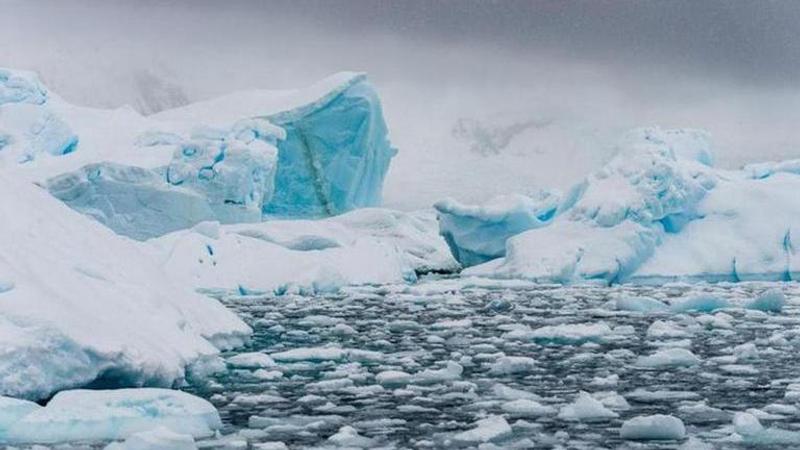Published 23:28 IST, December 15th 2020
UK research trip to study giant floating iceberg
A team of scientists will set off next month on a research mission to find out the impact of a giant floating iceberg on the wildlife and marine life on a sub-Antarctic island, the British Antarctic Survey said Tuesday.

A team of scientists will set off next month on a research mission to find out the impact of a giant floating iceberg on the wildlife and marine life on a sub-Antarctic island, the British Antarctic Survey said Tuesday. The huge iceberg -- the size of the U.S. state of Delaware -- has been floating north since it broke away from Antarctica's Larsen C ice shelf in 2017.
It is now about 75 kilometers (47 miles) from the island of South Georgia, and scientists are concerned over the risks it poses to the wildlife in the area if it grounds near the island. South Georgia is home to colonies of tens of thousands of penguins and 6 million fur seals, which could be threatened by the iceberg during their breeding season.
The waters near the island are also one of the world's largest marine protected areas and house more marine species than the Galapagos. The research ship RRS James Cook is expected to depart from the Falkland Islands for the iceberg in late January.
Two underwater robotic gliders will be deployed from the ship and spend several months collecting data to help investigate the impact of freshwater from the melting ice on the region.
The iceberg — named A-68a — is travelling at varying speeds depending on local conditions, but at its fastest was travelling about 20 kilometers (12 miles) a day.
Geraint Tarling, an ecologist at the British Antarctic Survey, said "South Georgia is an amazing biodiversity hotspot." "This iceberg has a keel, a depth underneath it that's about 200 metres. And so what that might do, as it goes onto the shelf of South Georgia, it might start scouring the sea bed, and so all those amazing communities of benthic organisms are going to start getting scoured."
"Also, just having a physical obstacle like this in the waters around South Georgia, could present a lot of problems for things like penguins and seals. When they're trying to get out to their feeding grounds, particularly at this time of year" he added.
Povl Abrahamsen, who is leading the mission, said it normally takes years to plan such marine research trips. But the mission is made possible because officials recognize the urgency to act quickly. "We're taking this opportunity to go to the iceberg, do measurements around there and deploy two underwater robotic gliders as well to measure the physical impacts of the berg on the local environment," he said.
Representative Image
Updated 23:28 IST, December 15th 2020




